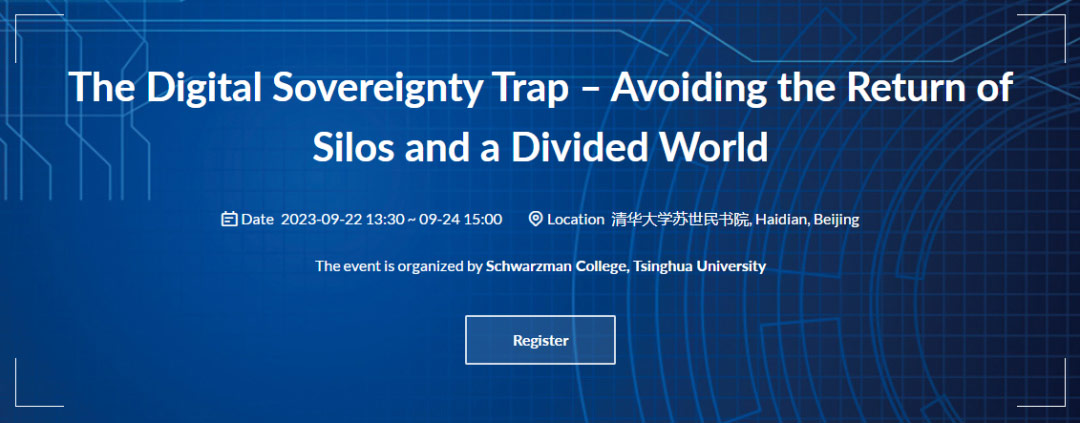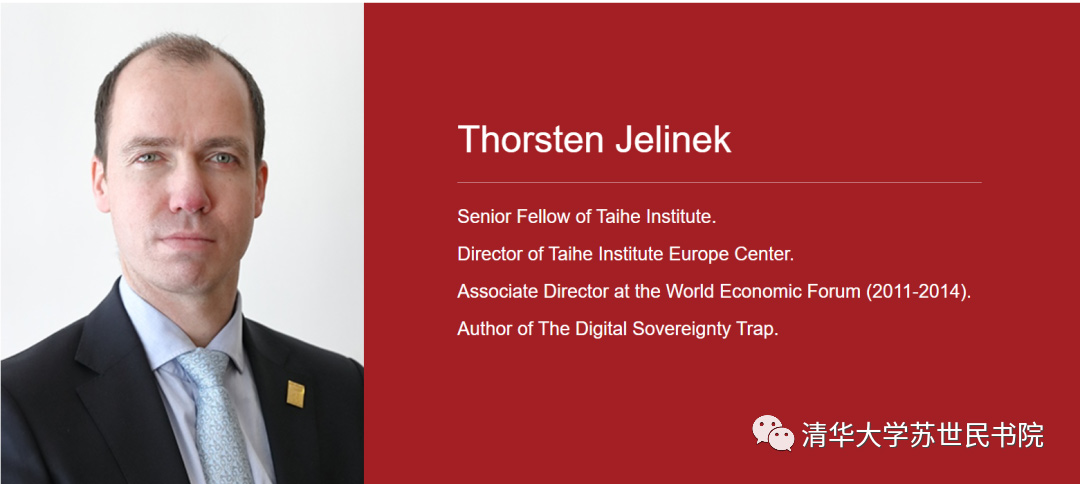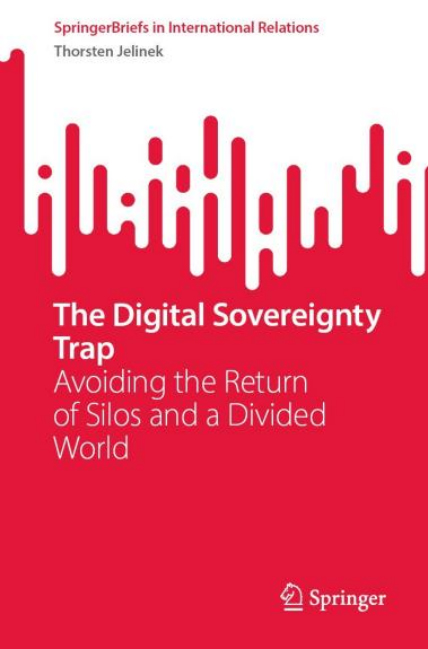
In this lecture, Dr. Thorsten Jelinek taps into key themes from his new book, which addresses the rise of digital sovereignty as a response to the current crisis of multilateralism and the intricacies of AI-driven digital transformation.
Delving into telecom history, he draws parallels between today’s protectionists tendencies and the Western telecom monopolies that determined much of the 20th century.
He highlights how China, as the only late emerging economy, broke through institutional and technological asymmetries.
Drawing on these insights, Dr. Jelinek invites students to discuss the future of global collaboration and innovation, which has been a key driver for the unparalleled growth and development during the previous wave of globalisation, and is now at risk of disentanglement.
作者介绍 Abouttheauthor

Thorsten Jelinek is an international policy expert with a focus on the intersection of digitalization, cybersecurity, and international relations. He is the Europe Director of the Taihe Institute and holds a visiting fellowship with the Hertie School’s Centre for Digital Governance. Thorsten is an active member of the Think 20 where his policy contributions have been included in T20 communiqués presented at G20 leaders' summits, including his brief on “The creation of a G20 coordinating committee for the governance of AI.” Previously, Jelinek was a member of ITU’s Connect2Recover Initiative and served on the advisory board of the OECD’s Trust in Business Initiative. He also contributed to the Belt & Road Forums (2017, 2019), United Nations’ High-level Panel on Digital Cooperation and the Multistakeholder Advisory Group of the UN Internet Governance Forum. Thorsten was an Associate Director at the World Economic Forum and held managerial positions in the ICT industry. His academic background includes a Ph.D. from the University of Cambridge, an M.Sc. from the London School of Economics, and a B.Sc. in Software Engineering and Business Administration from the Berlin University of Applied Sciences.
Time 活动时间
Friday, September 22 13:30 - 15:00
9月22日 周五 13:30 - 15:00
Venue 活动地点
Schwarzman College
娱乐场
How to Attend? 参与方式
Who can attend this event?
This event is open to currently enrolled Tsinghua University students, both undergraduate and graduate, as well as faculty and staff currently employed by Tsinghua University.
What is required to join this event?
All guests must present a valid registration from this website (Bag Event 百格活动)as well as a valid Tsinghua University ID Card in order to access Schwarzman College for this event.
Entering and Exiting Schwarzman College
Registered attendees can enter Schwarzman College 30 minutes before the session begins. For this session, doors open at 1:00 pm. No attendees will be admitted after 1:55 pm.
Following the conclusion of this event, Schwarzman College is closed to visitors as it is a residential building (student dorm). We ask that all Tsinghua classmates and colleagues who join us for the session exit the building when our session concludes at around 3:00 pm. All guests' cooperation is greatly appreciated.

Link to Signup
扫码报名

In an ever-shifting digital frontier, this book stands as a beacon for global policymakers. Diving into the complexities of artificial intelligence, it accentuates the need for global governance, now at a crucial juncture. Harking back to the era of telecommunication monopolies, the narrative unveils the resurgence of digital sovereignty, mirroring historic re-regulation but with unparalleled stakes in our contemporary digital realm. China's rise disrupts long-standing asymmetries, directly challenging U.S. tech hegemony. What’s the imperative: to chart a course beyond hyperdigitalization's confines, promoting progress without raising new digital walls. More than timely, this book is indispensable for understanding the profound shifts in global digital power. Grasping the dilemma of global governance is crucial for policymakers navigating the 21st-century tectonic shift brought about by pervasive digitization and artificial intelligence.
Springer: //link.springer.com/book/10.1007/978-981-19-8414-3